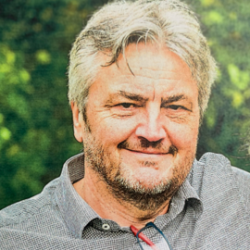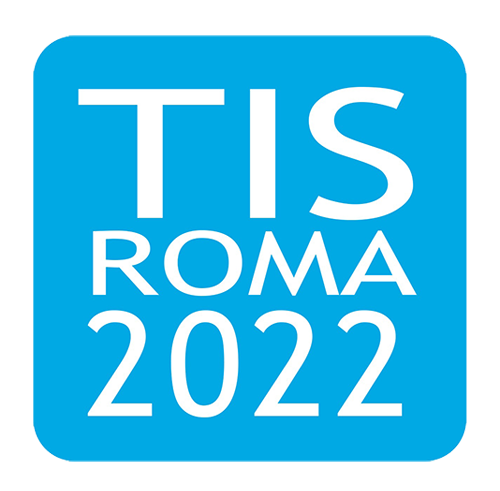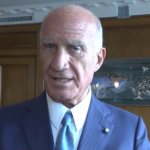KEYNOTE SPEAKERS
RIK NUYTTENS

Rik represents 3M Company at industry, standardisation and road safety organisations :
- European Union Road Federation (Brussels) : President since 2016.
- European Transport Safety Council (Brussels)
- Various working groups CEN European Standardisation Committee TC226.
A fast road to a better future?
Road safety represents a keystone for the ERF activities providing technical support from the private sector towards firstly public authorities, and to the society as main beneficiary. Our mission is to support the European Union goal to halve the number of road fatalities for the present decade. In the EU, over 300 million vehicles circulate on a road network of approximately 5 million kms. The societal impact of road accidents, fatalities and injuries is estimated to be around 2% of the EU GDP, or in other words, around € 250 billion. “Intelligent vehicles driving on an intelligent road network” is expected to make our lives more comfortable, safer, and healthier. While Sustainable Urban Mobility Plans are looking at active mobility and pushing the personal car aside. Regarding road safety, the EU streamlines the strategy to reduce accidents, fatalities and injuries through the deployment of the Road Safety Programme every decade. Last guidelines 2011-2020 included a combination of measures to make infrastructure, user and vehicles safer stressing the role of specific elements (i.e. markings and signs) through the revision of the RISM Directive and the Safety Regulation. Regarding the green approach of the sector, sustainability is not only limited to the environmental performance during road construction and maintenance operations but also broadens to the social, economic and technical dimensions. While decarbonisation represents a main concern for the European Union, the road infrastructure sector has undertaken significant efforts to promote greener practices which could decrease energy consumption, reduce GHG emissions and natural resources consumption during the lifetime of the road (i.e. circular economy). The ERF and its members are devoted to research, deploy and monitor initiatives from the road sector able to minimise the environmental impact while promoting innovation and decarbonisation during the entire lifetime of the infrastructure (design, construction, operation and end-of-life). The EU Green Deal aims to drastically reduce our environmental footprint. Climate change and recent geo-political developments have pointed out several areas of concern. The impact of the current political priorities to make Europe a climate neutral region especially with a “circular economy and zero carbon” focus, triggered another reason to revisit the Construction Product Regulation, which is at the foundation of green public procurement in our sector. For these reasons, we closely follow and contribute to the initiatives of the European Commission by participating in different expert groups or responding to public consultations sharing good practices and offering technical expertise from the industry. ERF welcomes these initiatives but is very concerned about the speed of introduction and the required transition time. Innovation tends to be strangled by red tape.
MARIA ATTARD

Maria Attard studied at the University of Malta and University College London (UK) and is currently Professor in Transport Geography at the University of Malta. She heads the Department of Geography and manages the Institute for Climate Change and Sustainable Development where she and her researchers work on sustainable urban mobility amongst other themes. Maria is co-editor of the journal Research in Transportation Business and Management, associate editor of Case Studies on Transport Policy and is an editorial board member of a number of transport journals including Journal of Transport Geography. She is co-chair of Cluster 2 in NECTAR and Steering Committee member and SIG G3 co-chair of the WCTRS.
Active Travel: Achieving sustainability, resilience and inclusivity
There are evident gaps in transport policy that promote active travel in order to make the transportation system more sustainable, more resilient and ultimately more inclusive. Many policies are still very much car-oriented, and with increasing problems related to environment, health and physical inactivity, there is a potential to rethink active travel as the future-proof solution to many current challenges. Whilst some cities have been effective at adopting active travel policies, others lag behind both in terms of infrastructure but also proper incentives that encourage walking, cycling and the new additions of micro-mobility. COVID-19 has provided not only the opportunity to see the benefits of reduced car dependence, but has also exposed the ability of communities and local governments to embrace change. Many experienced overnight changes to infrastructure with pop-up cycle lanes and pedestrianisation to secure enough space for physical social distancing and local active mobility during lockdown periods. This keynote will look at active travel research at a crucial time when the world is recovering from the pandemic and, hopefully, weighing the benefits of changes which prioritize active travel.







